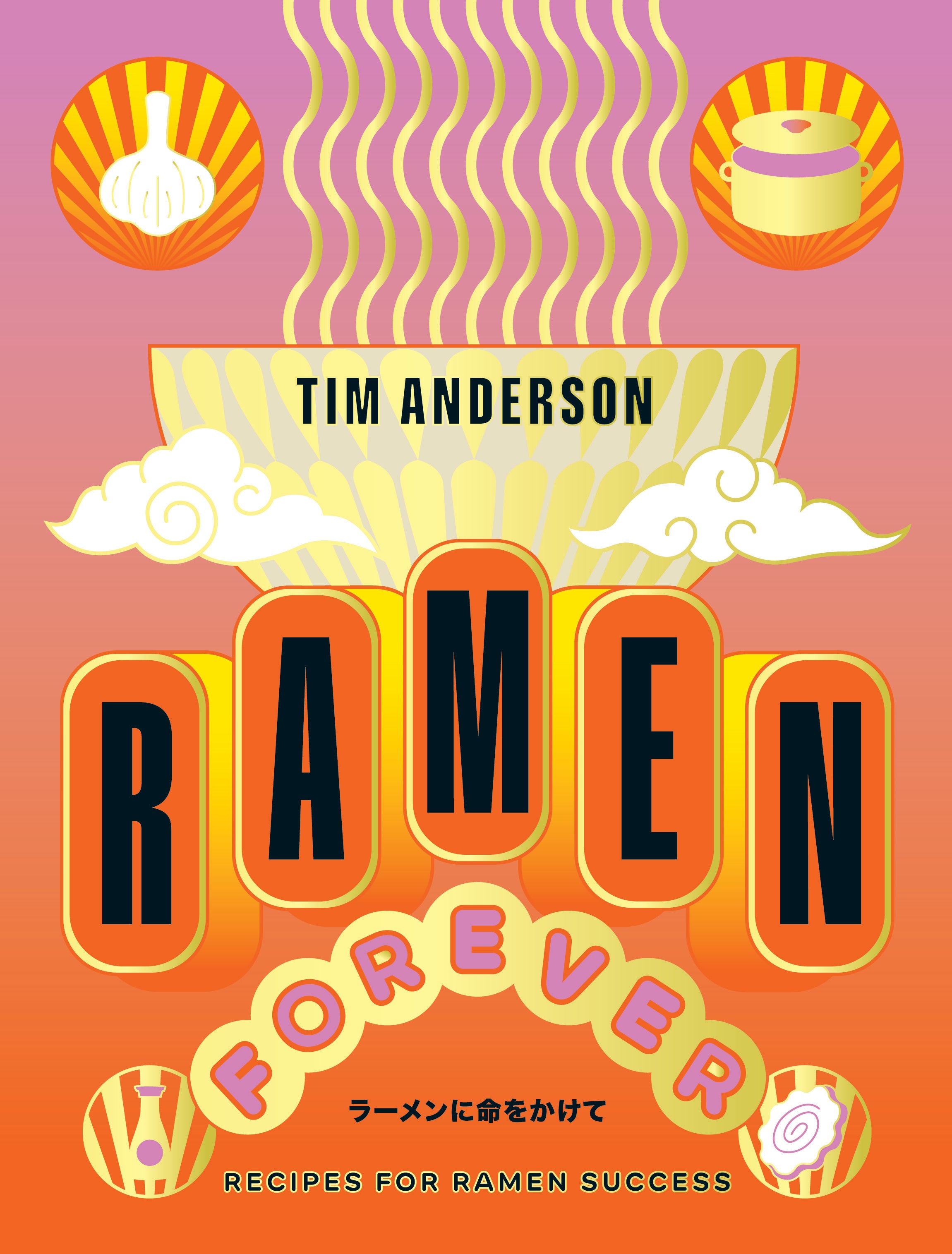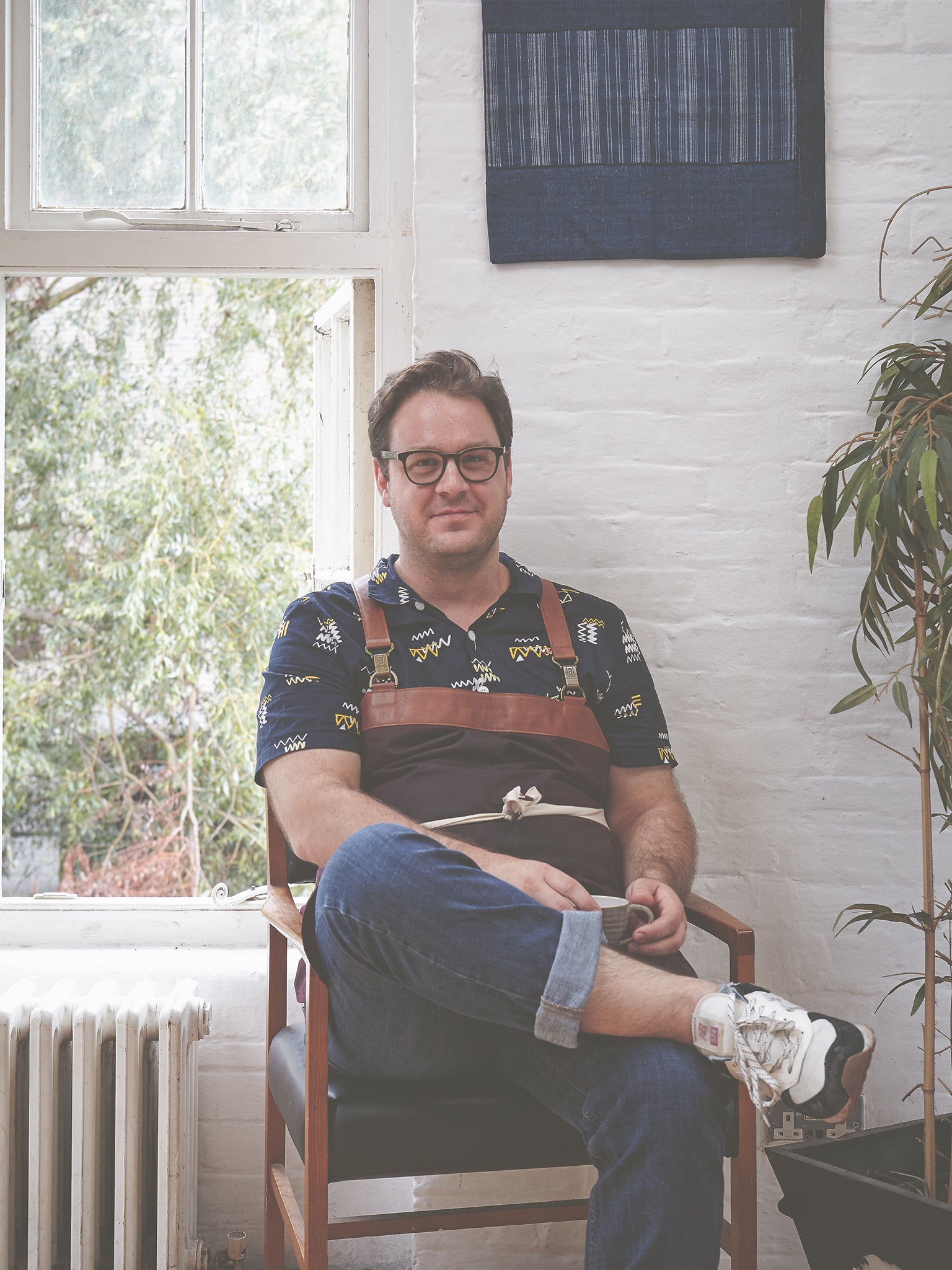Chef Tim Anderson on how his obsession with ramen changed his life: ‘My kids wouldn’t exist’
The former Masterchef winner and noodle nerd chats to Prudence Wade about the instant noodle phenomenon, why we should think of ramen as a sandwich, and his experiments with leftover Nando’s

Your support helps us to tell the story
From reproductive rights to climate change to Big Tech, The Independent is on the ground when the story is developing. Whether it's investigating the financials of Elon Musk's pro-Trump PAC or producing our latest documentary, 'The A Word', which shines a light on the American women fighting for reproductive rights, we know how important it is to parse out the facts from the messaging.
At such a critical moment in US history, we need reporters on the ground. Your donation allows us to keep sending journalists to speak to both sides of the story.
The Independent is trusted by Americans across the entire political spectrum. And unlike many other quality news outlets, we choose not to lock Americans out of our reporting and analysis with paywalls. We believe quality journalism should be available to everyone, paid for by those who can afford it.
Your support makes all the difference.Chef Tim Anderson says his life would be “unrecognisable” if it wasn’t for ramen.
“In 2005, I stumbled into a ramen shop randomly in Little Tokyo in LA and had this ramen moment that really got me hooked,” says Anderson, who grew up in Wisconsin and now lives in southeast London.
“From then, I started to try eat as much of it as possible, learn as much of it as possible. I didn’t think anything would ever come from it, it was just something I loved and was interested in – but then one thing led to another, and it’s really weird to think how different and unrecognisable my life would be if it weren’t for ramen.”
First, it led Anderson to get a research grant to study local food in Japan, then he enrolled in an English teaching programme – choosing to live in Fukuoka, purely because it was known for ramen.
“If I hadn’t lived there, I wouldn’t have met my wife, and therefore I wouldn’t have had my two kids, who I love,” Anderson, 39, says. “If it wasn’t for me being obsessed with ramen, my kids wouldn’t exist! It’s not a direct line, obviously, but it’s a funny thing to think about.”
Another big ramen moment came in 2011, when Anderson cooked it on MasterChef – which he then went on to win. “None of this would have happened without ramen,” he says in disbelief.
After already writing five cookbooks, Anderson has only now decided to dedicate his sixth book to his beloved dish – but he still has his reservations.

“Any book on ramen is going to be incomplete, so I did my best. And as I was writing it, I did feel a bit more confident, because I realised testing these recipes – this is a dish I know pretty well at this point.”
Anderson says we’ve collectively reached “critical mass” of “ramen geekery” – but he still doesn’t quite understand how the Japanese noodle dish has become such a global phenomenon.
“I don’t understand quite why it’s ramen, as opposed to other noodles, that the world has really gone crazy for,” he says.
“I think there is something to the instant ramen phenomenon, in that pretty much everybody in the world grows up with that now in some form – whether it’s Pot Noodle, or for me it was Maruchan, which is a big brand in America.
“It’s one of the first things people learn to cook, if you can call it cooking, because you just add boiling water – and it’s delicious and salty. So I think people already have that as a baseline, a format and a flavour that they’re familiar with and understand and enjoy.”
The other big draw, Anderson notes, is the fact it’s “so diverse and customisable”. And “there’s a ramen for everybody” – from the rich flavour of a tonkotsu with a fatty pork broth, or the deep umaminess of a chicken and soy sauce dish.
Anderson has cooked and eaten his fair share of ramen, so what does he think it needs to be perfect?
“When I was first starting out, I thought it was all about the broth. A lot of people think that, because you take one sip of that broth and it’s so delicious – it’s got richness and umami and salt and complexity and depth. People really get hooked on that.

“So I spent a long time at first trying to get the broth right. But over the years, I’ve realised that really what is important about ramen is how the noodles and the broth work together – how the noodles carry that broth and how it conveys flavour as you slurp it up.
“My thinking now is if you have good noodles, and a noodle that matches the broth, that’s half the battle.”
Picking the right type of noodle is key. This could mean choosing thin, straight, hard noodles with a rich pork broth, so they become coated in the sauce. Alternatively, you could go for softer noodles that absorb a less fatty broth.
One thing Anderson sees people constantly get wrong with ramen is thinking of it “as a bowl of toppings”, he says.
“You see this in some ramen restaurants and chains where you look at the ramen and it’s got a whole steak on it, a whole chicken breast or a salad.
“I get why people do that, because people used to come into our restaurant [Anderson used to run a Japanese restaurant in London’s Brixton called Nanban, that’s since closed down] and complain. They were like, ‘It’s only got one slice of pork belly on!’
It’s one of the first things people learn to cook, if you can call it cooking, because you just add boiling water – and it’s delicious and salty
“It’s like, yeah, because it’s not a Sunday roast. Think of it like a sandwich – it’s not about one thing, it’s about how it all comes together. So less is more with the toppings.”
Anderson might be a ramen purist, but you’ll still see some wackier recipes in his new book, Ramen Forever, alongside the classics.
These include ramen sausage rolls (where crispy noodles wrap around a pork filling), chicken Caesar ramen salad and leftover Nando’s ramen.
“I had leftover Nando’s bones and I don’t like to throw things away – I just chucked them in a pot and boiled it, not very long, about an hour, and I tasted it and I was like – this is surprisingly good,” he remembers.
These kinds of recipes add a bit of “fun”, he says, “Because you’d never really see it on a restaurant menu.
“It’s something for the home cook.”
‘Ramen Forever: Recipes For Ramen Success’ by Tim Anderson (Hardie Grant, £26).
Join our commenting forum
Join thought-provoking conversations, follow other Independent readers and see their replies
Comments